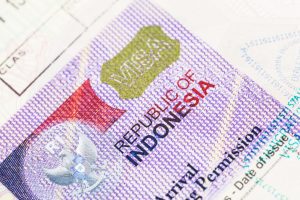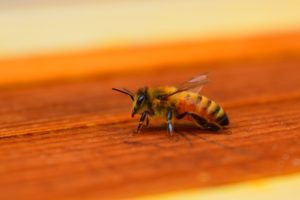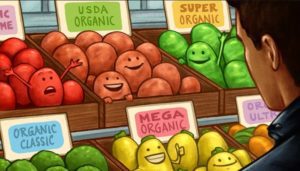
The Cabinet of Ministers of Ukraine has approved a draft agreement with the government of the Republic of Indonesia on the mutual cancellation of visa requirements.
The corresponding decision was made at a government meeting on Wednesday.
The draft agreement provides for the possibility of visa-free travel by citizens of the countries of the parties for up to 30 days during each visit of Ukrainian citizens to Indonesia and for up to 30 days within 60 days for travel of Indonesian citizens to Ukraine.

The single counterparty exposure limit (H7, no more than 25%) was violated by Ukreximbank (36.1%), Industrialbank (58.16%), Prominvestbank (62.81%), and Misto Bank (42.73%) as of April 1, 2020, the National Bank of Ukraine (NBU) has reported.
The related party transactions exposure limit (H9, no more than 25%) was violated by FUIB (30.12%), Megabank (63.65%), Bank for Investments and Savings (78.05%), First Investment Bank (73.38%), and Unex Bank (31.50%).
The limit on bank total long open FX position (L13-1, no more than 10%) was violated by Prominvestbank (112.87%), Oschadbank (125.49%), PrivatBank (167.8%) and Industrialbank (19.17%).
The limit on bank total short open FX position (L13-2, no more than 10%) was violated by Prominvestbank (104.8%).
The liquidity coverage ratio (LCR) for all currencies (at least 100%) was violated by Misto bank (78.83%).
As for the adequacy ratio for core capital (H3, at least 7%), the NBU said that considering the requirements to raising the capital conservation buffer, the common equity adequacy ratio (N3) as of the beginning of 2020 should account for at least 7.625%.

The Ukrainian industrial company Interpipe has designed, developed and tested a new connection Intrepid-SP, devised specially for the North American market.
According to the company’s press release, this product serves for the construction of directional and horizontal wells in order to extract shale oil and gas which are in hard-to-reach layers – shales, dense sandstones and limestones. Due to the “shale revolution” and new drilling technologies the United States doubled its oil production over the past decade.
At the same time, the purpose of Intrepid-SP is to maintain the column gas tightness under a complex load and ensure its safe rotation during descent. Such rotation is a necessary technological condition for the construction of horizontal sections of wells with large deviations from the vertical.
Intrepid-SP may also be used for the exploitation of traditional deposits but with hard-to-recover reserves, for example, in multilateral wells with horizontal endings or a new horizontal section is “added” to the main well of an existing well.
Interpipe CFO Denys Morozov said that to expand the line of threaded connections for oil and gas production entering new market segments.
“The new connection was developed considering the peculiarities of the North American market and is intended for companies that develop complex deposits. Intrepid-SP was tested in an independent laboratory. We are going to deliver the first shipment by the end of the year,” the top manager said.

The Ministry of Agrarian Policy and Food of Ukraine has approved mandatory requirements for honey, which will come in force in six months, on February 6, 2020.
According to a report on the ministry’s website, its order No. 330 dated June 19, 2019 and officially published on August 6 harmonizes Ukrainian legislation with European legislation regarding honey requirements. The document will improve the regulatory framework for the labeling, production and sale of honey.
The ministry said that voluntary application of the approved requirements is envisaged until January 1, 2023, which will allow market operators to prepare for new requirements.
The document divides honey by origin into nectar (flower) and honeydew, by the method of production into honeycomb, honeycombs in honey, honey, centrifugalized and pressed honey.
The labeling requirements indicate that the package of honey should contain information about the country of origin, the label of honey for confectionery products along with its name it should be indicated that it is intended only for products to be processed.

A law “On basic principles and requirements for organic production, circulation and labeling of organic products” came into force on August 2.
The law, in particular, meant to improve the legal regulation of organic production in Ukraine and bring it into line with the EU legislation, Agrarian Policy and Food Ministry of Ukraine reported on its website.
“Ukrainian domestic organic products are becoming more popular in the foreign markets: over the past few years our state has become an important supplier of the organic products to the western markets, being ranked the fourth among the exporters of the organic products to the EU countries,” the ministry said adding that all necessary regulatory legal enactments have been already drafted.
Besides, the lawmakers envisaged a mechanism for certification of the organic production. If the organic goods put up for sale without a respective certificate, sellers of such production will have to pay fines in amount of five to eight of minimum wages, reads a report on the ministry’s website.
According to new law, the State Service of Ukraine on Food Safety and Consumer Protection will be a supervisor of organic production in Ukraine.
On July 10 the Verkhovna Rada at second reading and as a whole adopted bill No. 5448-d on basic principles and requirements for organic production, circulation and labeling of organic products, and President of Ukraine Petro Poroshenko signed it at the end of July. The law, in particular, establishes the basis for the legal regulation of organic production and the functioning of the market of such products.

An electronic document generated by the e-archive system of Ukraine in the ASiC format and signed using MobileID based on ECDSA, has been tested for compliance with the EU formats.
“In practice, this means that Ukraine has fully regulatory and technologically implemented the EU requirements for electronic documents,” Ze!Team said on Facebook.
The message says that Ukraine “has become one more step closer to digital Europe.”
“E-government is not only public things, but also complex regulatory and technical work in the back office,” the Ze!Team said.